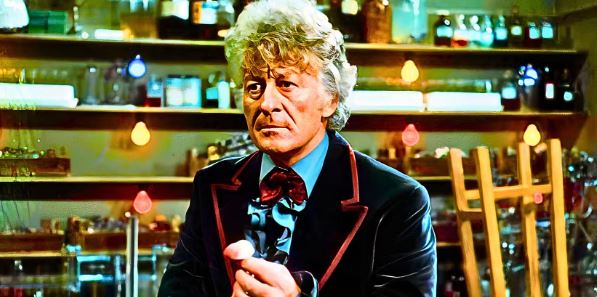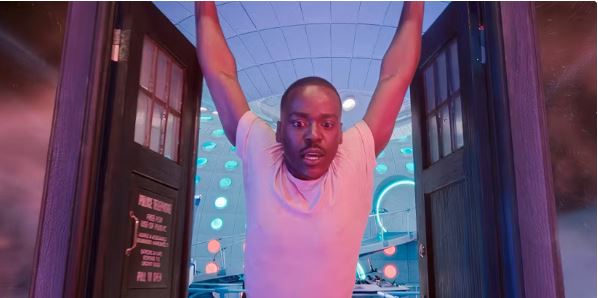Ncuti Gatwa’s more emotional performance as Doctor Who’s Fifteenth Doctor has proven controversial, but it really shouldn’t be. Traditionally, Doctor Who’s titular hero has maintained a very scientific, matter-of-fact approach to saving the universe, but their stance softened in stages as the years passed. Peter Davison’s Fifth Doctor was noticeably more human than his predecessors, while Eight, Ten, and Thirteen also followed a more open and empathetic philosophy compared to most of Doctor Who’s regenerations.
Ncuti Gatwa’s Fifteenth Doctor continues in that vein, but the current incarnation’s more vulnerable side has attracted criticism. Returned Doctor Who showrunner Russell T Davies has confirmed that transitioning towards a hearts-on-sleeve Doctor was a deliberate move, and all signs indicate this pattern will continue in Doctor Who season 15, despite the controversy. While scarves will no doubt continue to get knotted over the issue, Fifteen’s vulnerable side is a worthy addition to the show.
Ncuti Gatwa’s Emotional Fifteenth Doctor Has Been A Benefit To Doctor Who

Some Of Doctor Who Season 14’s Best Scenes Were Because Of It
Ncuti Gatwa’s emotional Fifteenth Doctor has been a highlight of Doctor Who’s Disney+ era thus far, and it suits the actor perfectly. Two scenes in particular stand out: the outburst of anger after Finetime’s racist teens refused to be saved by a Black man, and the wobble after Sutekh started gaining the upper hand in Doctor Who season 14’s ending. Both moments proved raw, striking, and heightened the stakes of their respective episodes. It’s not all rage and tears either, as Fifteen’s romance with Rogue gave Doctor Who one of its best onscreen romantic partnerships, filled with passion, warmth, Shakespearean tragedy, and snappy dress sense.
The Fifteenth Doctor’s outward emotions may not work as well if they constantly dominated every scene, but that is not how Ncuti Gatwa played the part.
RTD has previously spoken about how his vision for the Doctor aligned with Ncuti Gatwa’s personal qualities (via BBC), stating, “Quite by chance, I wanted a more emotional Doctor, and lo and behold, we have cast someone whose emotions are vast, turbulent, and visible.” Watching the final moments of “Dot & Bubble,” it becomes very apparent that “emotional” sits firmly within Gatwa’s wheelhouse. Asking the actor to play stoic and reticent would be counterintuitive and a disappointing waste of a brilliant casting – like hiring Peter Capaldi and expecting the Twelfth Doctor to never be visibly very annoyed.
Much of the skepticism over Fifteen’s outbursts stems from the position “this isn’t who the Doctor should be.” After over 60 years onscreen, however, exploring new facets of the Doctor’s personality is necessary to keep the show alive. The real test of any alteration to the Doctor’s personality should instead be how well it fits their overall character arc and the tone of the show at any given time. Given that the Fifteenth Doctor’s emotional nature is an organic evolution from the David Tennant and Jodie Whittaker Doctors, and could also be interpreted as a response to Doctor Who’s Timeless Child twist, it meets the criteria.
Granted, the Fifteenth Doctor’s outward emotions wouldn’t work if they constantly dominated every single scene, but that is not how Ncuti Gatwa played the part in Doctor Who season 14. When Rogue vanished, the Doctor tried to cover up his pain. When he finally got the better of Sutekh, the Doctor ignored his merciful instincts and let the villain die. By all accounts, a certain side of the Fifteenth Doctor endeavors to bury personal heartache like past regenerations once did, and possesses a brutal streak that serves as a counterpoint to his usual cheery demeanor.
Doctor Who Has Been Redefining The Doctor Since The Very Start

Gatwa’s Doctor Isn’t Even The Character’s Most Radical Change
One must question whether Doctor Who’s emotional Fifteenth Doctor is really such a betrayal of the past. There is a temptation to assume early Doctors all sang from the same hymn sheet, but that couldn’t be further from the truth. In switching from William Hartnell to Patrick Troughton, Doctor Who moved from a grandfather-like figure with the stiffest of upper lips to a clownish, softer regeneration who treated companions more like friends. Then Jon Pertwee arrived as a flamboyant, car-driving, martial arts-using Doctor, redefining the character once again.
Looking at the very stark differences between the first three Doctors alone, the Fifteenth Doctor’s willingness to cry now and again feels like less of a big deal – a trait that has perhaps been magnified by the glare of social media and the context of a wider culture clash where the slightest sliver of empathy or tolerance becomes a magnet for political agenda.
Ultimately, every incarnation of the Doctor in Doctor Who has always cared. Not showing those feelings externally reflected the real-life attitudes of the era, but as the world broadly comes to accept that expressing emotion is a healthy thing, the Doctor has no reason not to do it.
Russell T Davies echoes this, acknowledging, “But right now in 2024, I want a man who cries when it’s sad.” Reading between the lines here, Doctor Who’s showrunner is referring to the Doctor’s responsibility as a role model. Viewers can argue over specific character quirks, but providing a heroic figure that younger viewers can aspire to emulate has always been coded into the Doctor’s DNA. In the modern era, it’s very difficult to fulfill that responsibility with a character who would quite literally pretend an entire regeneration never existed to avoid coming to terms with their trauma.
Ncuti Gatwa’s Emotional Fifteenth Doctor Demonstrates The Beauty Of Regeneration

Regeneration Invites Variety – And That’s A Great Thing
Just as Doctor Who’s emotionally open Fifteenth Doctor represents a refreshing change from what came before, it must be remembered that future Doctors will not always follow Ncuti Gatwa’s lead. The current Doctor’s persona is a reaction to many different factors: the Timeless Child, the beginning of a new era, the actor’s personal strengths, etc. As Doctor Who moves forward, there will inevitably come a time when an upcoming regeneration is required to be presented as more solemn, more serious, more secretive. Their story would then focus on the reasons behind that change, and exactly how the Doctor returns to a healthier place.
This is the beauty of regeneration – a procession of talented actors adding their distinct touch to one specific chapter in the Doctor’s history. Some will be lighter, others will be darker, some will be expressive, others will be unsociable. That back-and-forth is the biggest advantage Doctor Who has over every other long-standing franchise, and to not seize it with enthusiasm would be foolish. There are only two ways Doctor Who can ever truly fail its main character: repeating the same formula over and over again, or betraying their core values. Fifteen falls into neither pitfall.
While the debate over Ncuti Gatwa’s Fifteenth Doctor will rumble into Doctor Who season 15, there is a silver lining for both sides. From William Hartnell and Colin Baker to Matt Smith and Jodie Whittaker, many Doctor Who actors don’t nail down their character straight away. Given that Ncuti Gatwa was largely missing for two episodes of his already short debut season, it seems likely that the Fifteenth Doctor who returns for Doctor Who season 15 will feel more refined in terms of his characterization. Emotional or not, the best of Ncuti Gatwa as the Doctor is yet to come.
